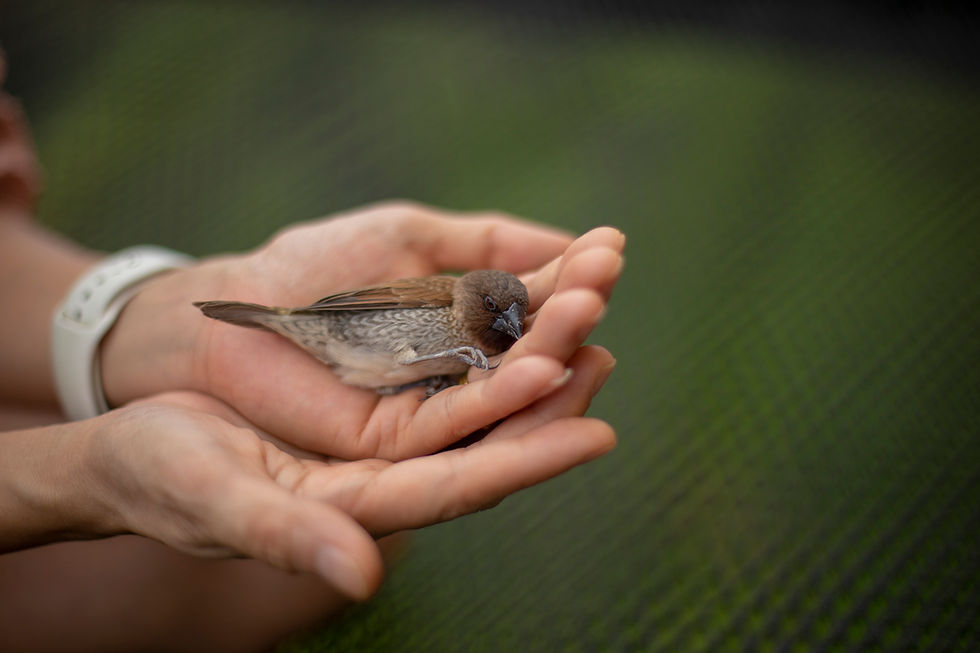Helping wildlife that needs assistance
- Oct 7, 2025
- 2 min read
~wildlife education~
Wild animals face calamity from many sources. Injuries from motor vehicles, power lines, window strikes, cat or dog attacks, wildfires and deforestation, encroachment, hunting… the list goes on.

Photo credit: istock.com/ Santi Wiwatchaikul
How do you know if an animal needs help? Here are some signs that an animal is sick or injured:
· There is blood, wounds or swelling on the body
· It is vocalizing and/or following humans around
· It has been attacked by a domestic cat
· It has difficulty breathing
· It has a dangling appendage
· Its eyes are closed
· Its head is tucked under a wing.
A good rule of thumb, if a wild animal allows you to walk up to them and pick them up, they are in need of medical attention.
Catching injured wild birds or animals can be tricky but here are a few helpful pointers.
If you find a small, injured bird, carefully throw a towel or blanket over it. Gently pick it up and take it to NIWRA or your local wildlife rehabilitation centre. Some wounded mammals can be treated in the same way. However, if you come across injured wildlife with dangerous teeth and talons, you should get some help and not try to deal with them alone. The occasional brave soul has brought in bald eagles on their own to NIWRA, but that’s because there was no help around.
Keep rescued wildlife in a dark ventilated box away from human contact until you can get to the rehabilitation centre. Stress can be harmful or even fatal to a wild animal. The animal could die of a heart attack. Gently covering the head with a towel should calm it down. Do not put injured animals in the trunk of your car or leave them in an unventilated hot back seat.
It is stressful for an animal to be taken away from their own species or when improper handling or feeding techniques are used.
A stressed animal may exhibit behaviour such as struggling, screaming, or biting. Parasites will flourish on a stressed animal. Stress can make an animal go into shock and die, a syndrome known as Capture Myopathy. When rescuing an injured animal, be gentle and do your best to keep it from becoming stressed.
You can help care for future generations of wild animals by leaving a legacy in your will to a rehabilitation centre like NIWRA.
You can help the wildlife in care at NIWRA by making a financial contribution on our secure website. Thank you so much for caring about wildlife!







Comments